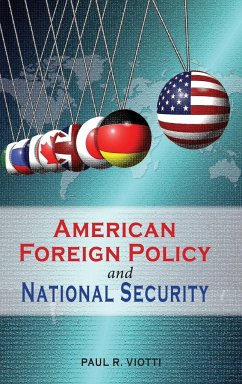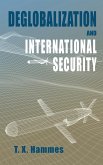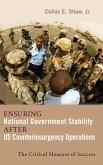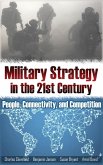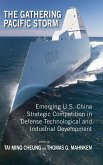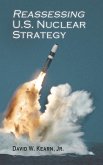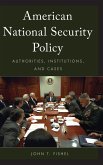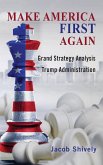*This book is in the Rapid Communications in Conflict and Security (RCCS) Series (General Editor: Geoffrey R.H. Burn). This book seeks explanation for the making and implementation of American foreign policy-the decisions and actions the United States takes vis-à-vis state and non-state actors abroad. The latter includes international (IOs) and non-governmental organizations (NGOs), other groups and, in some cases, powerful individuals. In this effort we are drawn to the decisionmakers themselves. Although precise or point predictions are elusive, deeper understandings of how policymakers tend to operate in the processes of making and implementing foreign policy can lead to greater accuracy in the practical expectations we develop for what may happen. Rather than presenting a theory of foreign policy, this study identifies factors or essential elements that likely would be part of such a theory. These structural and ideational factors (both domestic and international) influence the choices policymakers make-the ways and means by which they make and implement American foreign policy. The book focuses on the nationalist or internationalist orientations of decisionmakers that affect the way they see the US role in making and implementing foreign policy. In this regard, nationalists are domestically focused and tend to deemphasize international involvement, minimizing to the extent possible government actions abroad. By contrast, I also identify three kinds of internationalist orientation-liberal, conservative, and militant. Broadly speaking, the range or spectrum of foreign policy options includes (1) diplomacy and other forms of peaceful or constructive engagement not just with allies, coalition partners and other friendly countries, but also vis-à-vis adversaries; (2) containment of adversaries-deterrence, coercive diplomacy, and other negative measures short of war; and (3) armed intervention or warfare with adversaries. Divided into three parts, Part 1 examines peaceful engagement, containment, and armed intervention. Part Two takes a look back on the American experience since the 18th century. Part Three explores how domestic politics affect the making and implementation of American foreign policy-dubbed politics on the Potomac River where the executive, legislative, and judicial branches and private-sector actors operate.The last two chapters address in greater detail the domestic political milieu and elite understandings of power that drive the making and implementation of American foreign policy.

